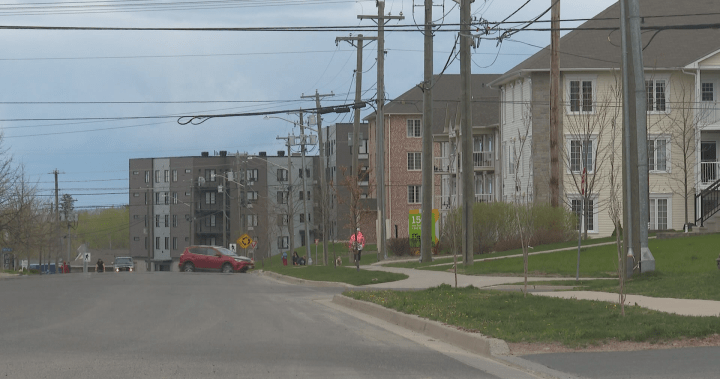The average price of rent in New Brunswick has increased by 10.5 per cent since April of last year, far exceeding the province’s target of 2.5 per cent. The New Brunswick tenants coalition spokesperson, Matthew Hayes, believes that this increase shows the government is failing to address the housing crisis and that renters are suffering as a result. He argues that rent control tied to units is necessary to address the issue and protect access to affordable housing. However, Housing Minister Jill Green has resisted re-introducing rent control after the 3.8 per cent cap expired, stating that the province does not want to disincentivize construction.
Despite the increase in rent prices, housing starts in New Brunswick continue to fall short of the target of 6,000 per year, with just over 4,500 starts in 2023. This number is down slightly from the year before and lags behind the province’s Maritime neighbours. Green admits that more can be done to address the housing crisis and plans to implement new measures to increase the number of housing starts. However, Hayes argues that relying on the market to solve the issue is doomed to fail and that New Brunswick needs to build 380 public units annually to address the crisis effectively.
Hayes emphasizes the importance of access to affordable housing as a public good and believes that the government has a responsibility to ensure it’s available to all residents. He urges the government to consider rent control as a mechanism to regulate the price of rents and protect tenants from being impoverished. Despite Hayes’ calls for action, Green has remained hesitant to re-introduce rent control, citing concerns about its impact on construction in the province.
As rent prices continue to rise in New Brunswick, tenants are feeling the financial strain and the housing crisis is escalating. The province’s housing minister acknowledges that more needs to be done to increase the number of housing starts and provide affordable options for residents. However, the debate over the effectiveness of rent control as a solution to the crisis remains ongoing, with advocates like Hayes pushing for government intervention to protect renters from further financial burden.
The tension between the New Brunswick government, housing advocates, and tenants highlights the ongoing struggle to address the housing crisis in the province. While there are differing opinions on the best approach to solving the issue, it is clear that action is needed to ensure access to affordable housing for all residents. The debate over rent control, housing starts, and government intervention will likely continue as stakeholders work towards finding a solution that addresses the needs of tenants while also considering the impact on construction and the housing market in New Brunswick.


